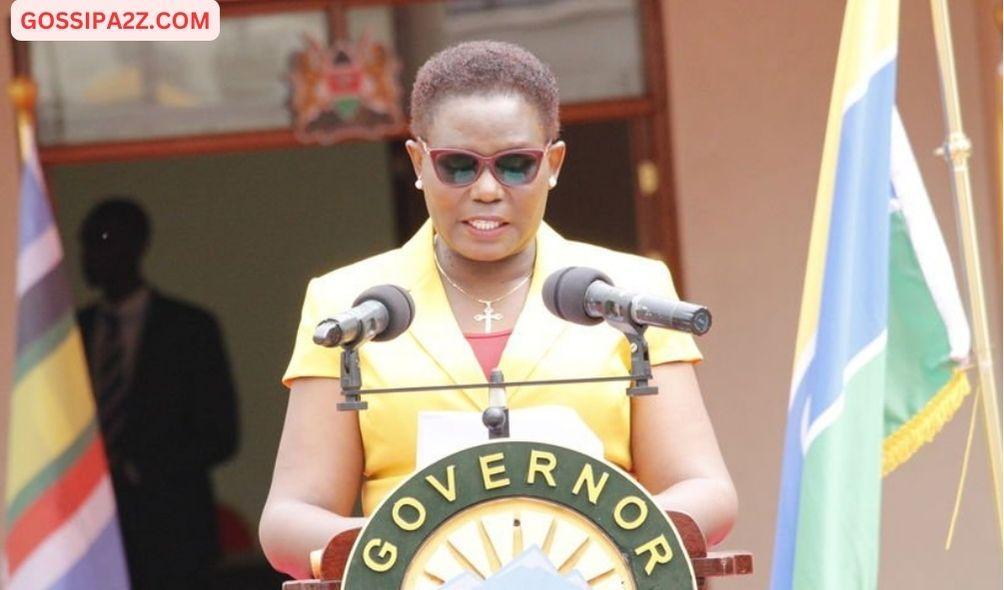State House Influence and Political Power Plays: Inside the Senate’s Contentious Vote to Oust Governor Mwangaza
Amid a tense impeachment trial, Ms. Mwangaza’s opponents seized the moment, rallying senators along political lines to secure her ousting.
Insiders reveal that a group of Meru County politicians visited the State House on Monday, urging President William Ruto to remain neutral.
This move emboldened them to enlist a top Kenya Kwanza senator to gather support from 28 United Democratic Alliance (UDA) senators—enough to surpass the 24-vote threshold required to unseat the 50-year-old governor.
“The leaders who met at State House were referenced during the impeachment proceedings. They requested the President to stay out of the issue, giving them room to rally along party lines,” one insider told the Daily Nation.
Reportedly, female governors also sought the President’s intervention, but Dr. Ruto remained non-committal.
Kenya Kwanza holds sway with 30 senators, bolstered by six opposition members who pledged loyalty to the ruling alliance, alongside 22 UDA senators and one each from Ford Kenya and the Democratic Party.
When voting commenced under Speaker Amason Kingi’s watch, 26 senators backed the first charge of gross constitutional violations, four opposed, and 14 abstained.
ALSO READ:
- Inside Job Exposed: Kenyan Prison Wardens Convicted for Orchestrating Daring Terrorist Escape
- Uganda Pulls the Plug: Nationwide Internet Blackout Ordered Days Before Crucial General Election
- African Elections Under the Spotlight as Zambia Turns to Kenya Ahead of 2026 Vote
- “Two Drug Barons in Cabinet?” Kenya Government Fires Back as Ex-Deputy President Sparks Explosive Drug Claims
- Kenyan Court Freezes Use of Private Lawyers by Government, Sparks Nationwide Legal Storm
The second charge of gross misconduct saw 26 in favor, two against, and 14 abstentions. For the third charge of office abuse, 27 senators supported it, one opposed it, while 14 abstained.
The session wasn’t without tension as chaos erupted, with heated exchanges between lawmakers. Nairobi Senator Edwin Sifuna labeled Mr. Kingi “an embarrassment,” while nominated Senator Gloria Orwoba was ejected for protesting the lack of debate before voting.
With deliberations stifled, some Azimio and Kenya Kwanza-nominated senators raised concerns about the direction of the process.
In response, opposition senators boycotted the voting, joined by Kakamega Senator Boni Khalwale (UDA).
Breaking ranks with his party, Elgeyo Marakwet Senator William Kisang voted against the charges, though his vote was invalidated due to a technical issue raised by Mr. Kingi.
“State House reportedly made calls. UDA senators were instructed to ensure Mwangaza was removed as governor. Lawmakers aren’t independent; Kenya is doomed,” said Kisii Senator Richard Onyonka.
Homa Bay Senator Moses Kajwang echoed this sentiment, stating, “Azimio won’t engage in petty political battles that breach the Constitution and the rule of law.”
Vihiga Senator Godfrey Osotsi also cited UDA’s interference, claiming it was more about power dynamics in Meru than the charges themselves.
ALSO READ: Gachagua Pressured to Team Up with Kalonzo, Natembeya as Rift with Ruto Widens
Kirinyaga Senator James Murango, however, dismissed these claims, insisting that senators acted independently, not under party orders.
“The governor overstretched her luck. We acted as impartial judges based on what we heard,” he said.
During the trial, Mitunguu Ward Representative Evans Mawira testified that Senate Deputy Speaker Kathuri Murungi and Buuri MP Mugambi Rindikiri played roles in the plot leading to the governor’s second impeachment.
As a former Meru County Assembly Majority Leader and the mover of the previous impeachment, Mr. Mawira turned witness for Ms. Mwangaza.
He disclosed that UDA county leaders orchestrated the scheme, rewarding supportive MCAs with at least Sh80,000 each.
According to Mawira, a December 2023 meeting in Nanyuki, Laikipia County, attended by all Meru County MPs and ex-Agriculture CS Mithika Linturi, solidified plans for reintroducing the impeachment motion around June 2024. He added that the 59 MCAs backing the motion were urged to maintain unity.
In her defense, Governor Mwangaza accused Senator Murungi of orchestrating her troubles despite attempts at reconciliation.
Dr. Khalwale criticized Kenya Kwanza debaters for succumbing to political hysteria instead of rigorously analyzing the issues.
He noted that impeachment is both legal and political, hinting that the process might have been driven by political motivations.
Political players were said to have paid MCAs to back the impeachment, a tactic Dr. Khalwale warned could trivialize the process.
“Impeachment shouldn’t be easy; it must address gross constitutional violations. If a governor is ousted because 20 cows died in Meru, then President Ruto should face impeachment for thousands of livestock losses last year,” he quipped.
ALSO READ: DP Gachagua’s Staffer Speaks After Her Sacking Letter Goes Viral
Mr. Onyonka highlighted that the charges were standard complaints often raised against governors, such as dismissing staff and nepotism, questioning why only certain governors face impeachment. He also criticized Speaker Kingi for rushing proceedings without allowing deeper scrutiny.
Dr. Khalwale expressed frustration over being denied the opportunity to seek clarifications, noting that some of the issues brought up were either resolved in prior impeachments or currently under court review.
“I couldn’t condone an illegality. These charges were previously unsubstantiated, and no new evidence was presented,” he argued.
Mr. Osotsi condemned the irregularities, citing that Azimio had raised concerns and sought Speaker guidance.
“The charges didn’t meet the threshold for impeachment—they were trivial. Kenya Kwanza merely followed party orders,” he stated.
“Azimio maintains that the charges lacked merit. Impeachment is a serious matter, and the bar must remain high.”
State House Influence and Political Power Plays: Inside the Senate’s Contentious Vote to Oust Governor Mwangaza
